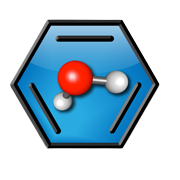Choosing The Right Career In Modelling Programs
There are a number of options available to those interested in the pharmaceutical industry, including working on the drug discovery or manufacturing side of things. However, in order to get a real foothold and make it big, it is essential that one develops an appreciation for the science behind this process. The role of drug discovery is not simply one of a number of steps that may be required for the success of a drug. It is important to recognise that the process begins with discovery and this includes the process by which an individual or company identifies a particular drug.
One way to determine whether a compound is worth developing further is to determine what specific characteristics make it distinct. For instance, there are some drugs that act well in certain groups of patients. These are called ‘orphan’ drugs. Some drug companies use these orphan drugs to build up their portfolio of potential drugs.
There are other orphan drugs that work better in other groups of patients. These are known as ‘extended spectrum’ drugs.
There are many drugs that don’t work in any one group of patients. These are known as ‘independently active’ drugs. They may also be known as ‘antagonist’ drugs, or simply as drugs that target a different part of the body. This may include drugs that act on one group of cells but not another. An example of an antagonist drug is the chemotherapy drug, which treats cancer in the bone marrow, while another drug treats cancer in the liver.
It is also possible for scientists to work on drug development independently as a part of their personal career, such as independently funded laboratories or research centres. This may mean that they do not work for a drug company, but instead set up their own small unit of scientists to focus solely on drug development, or research.
In Modelling programs can take a variety of forms, as well as being available in a number of different formats. If you’re looking to work in this field, you will want to look into getting a good education in both the scientific and technical disciplines so that you are able to understand how the processes operate in drug discovery, development and manufacturing. Once you have your degree and/or certificate, you may want to look into enroll in graduate level courses that will allow you to further your understanding of the various areas of interest.
Clinical training may be particularly useful to you as an in-lab scientist and may include clinical research, pharmacology or pharmacogenomics. In the case of drug discovery, these studies will help you to identify potential drug candidates and help you develop methods of evaluating the efficacy and safety of a drug in humans. If you are interested in working in development, you may even be able to take on jobs as an outside consultant and help the drug companies develop and market their products, or even be involved in clinical trials.
While it may seem strange to think about it, in modelling programs may even help you get a job in academia. This is because in the academic world, you have access to different materials that can be used in your work. In particular, some modelled drugs will be shown to have clinical significance in patients, which can be used by scientists for peer review. studies.
If you are looking to advance your career, you need to have a good education and experience. This may take the form of working as a member of a team in a large lab or taking a project to university, however there are also career paths that you may choose to take that require higher levels of skill, such as working for a drug company or university. As such, these careers will also likely require that you get a higher degree, and more advanced training.
Working in modelling programs can be a good place for you to explore all of these options, and to find out what’s available to you in the area of drug discovery and development. You can then find a role at a company, university or industry-based institute, or begin your own independent career, but there are also career opportunities in other fields. These include consulting for drug companies or independent companies, or a postgraduate degree in chemical engineering or a related field.

